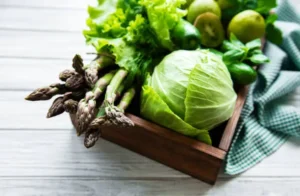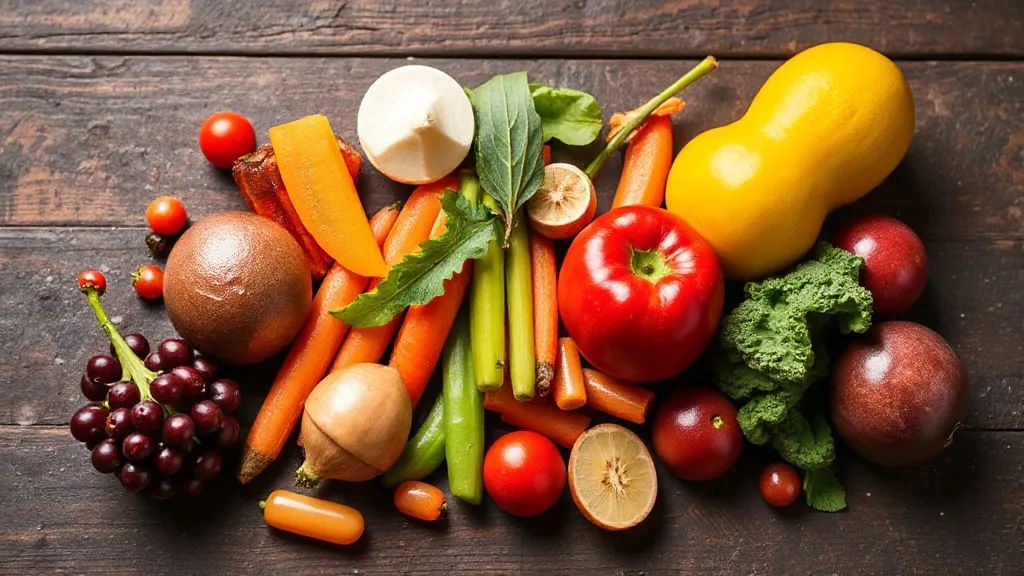Let’s face it—most of us aren’t eating enough fruits and veggies. Whether it’s due to a busy schedule, picky taste buds, or just not wanting to prep kale every morning, getting in 5 to 10 servings a day can feel nearly impossible. That’s where fruit and vegetable supplements come in.
These supplements promise to deliver the nutritional goodness of real produce in a convenient capsule or powder. But are they worth it? And more importantly, what is the best fruit and vegetable supplement out there?
We’ll break it all down—what to look for, the top products in the market, pros and cons, and whether these supplements live up to the hype.
What Are Fruit and Vegetable Supplements?
Fruit and vegetable supplements are made from dehydrated, freeze-dried, or powdered fruits and vegetables, often blended into capsules, gummies, or drink mixes. They’re designed to fill in nutritional gaps and support overall wellness.
Common ingredients include:
Kale
Spinach
Broccoli
Berries
Apples
Carrots
Beets
Tomatoes
Some also include probiotics, enzymes, or adaptogens for added health benefits.
Benefits of Taking Fruit and Vegetable Supplements
1. Convenience
No chopping, peeling, or blending—just pop a capsule or stir powder into water.
2. Nutritional Support
They help bridge the gap if you’re not hitting your daily produce goals.
3. Antioxidant Power
Many fruits and veggies are rich in antioxidants, which help reduce inflammation and fight oxidative stress.
4. Immune Boosting
Thanks to vitamins like C and A, these supplements may help strengthen your immune defenses.
5. Gut Health
Some blends add prebiotics and fiber to support digestion and gut flora.
What to Look for in a High-Quality Supplement
Not all fruit and veggie supplements are created equal. Here’s what separates the best from the rest:
✅ Whole Food Sourcing
Look for supplements that use real, whole fruits and vegetables, not synthetic vitamins.
✅ Minimal Processing
Cold-pressing or freeze-drying preserves more nutrients than high-heat processing.
✅ Third-Party Testing
This ensures safety, potency, and purity.
✅ No Added Sugars or Fillers
Avoid products with artificial sweeteners, colors, or preservatives.
✅ Transparent Labeling
The best brands list what’s in the product and how much.
Top 7 Best Fruit and Vegetable Supplements
1. Balance of Nature
Form: Capsules
Pros:
Made from 100% whole foods
No fillers or synthetic ingredients
Third-party tested
Cons:
On the pricier side
Best For: People looking for a clean, trusted option with solid customer reviews.
2. Texas SuperFood
Form: Capsules or powder
Pros:
55 whole food ingredients
Gluten-free and non-GMO
Available in capsule or drink mix
Cons:
The taste of powder can be strong
Best For: Those who want a dense variety of fruits, veggies, enzymes, and algae.
3. Juice Plus+
Form: Capsules or chewables
Pros:
Clinical studies back the brand
NSF-certified for sports
Cons:
The MLM business model may be off-putting
Best For: Athletes or people who want proven scientific research behind their supplements.
4. Garden of Life Raw Organic Perfect Food Green Superfood
Form: Powder
Pros:
Certified organic and vegan
Contains probiotics and digestive enzymes
Affordable for the quality
Cons:
Earthy taste may not suit everyone
Best For: Gut health and greens-focused support.

5. Organifi Green Juice
Form: Powder
Pros:
Tastes better than most greens
Contains ashwagandha and other adaptogens
Easy to mix
Cons:
Not a huge variety of fruits
Best For: Energy, stress support, and daily greens in a tasty drink.
6. Athletic Greens (AG1)
Form: Powder
Pros:
75+ ingredients including vitamins, minerals, and probiotics
Great for athletes and health enthusiasts
Cons:
Expensive
Best For: People who want an all-in-one superfood blend.
7. SuperBeets by HumanN
Form: Powder
Pros:
Clinically studied for blood pressure support
High in nitric oxide
Cons:
Not a broad-spectrum supplement
Best For: Cardiovascular health and energy boost.
Are Fruit and Vegetable Supplements Effective?
They’re not magic pills. Supplements should never replace a diet rich in fresh produce. However, they can:
Provide nutritional insurance
Help during busy or travel-heavy periods
Boost micronutrient intake
But you still need fiber, hydration, and phytonutrients that only whole foods can deliver completely.
Common Myths About These Supplements
❌ “They replace real fruits and vegetables.”
Nope. They supplement, not substitute.
❌ “All supplements are created equal.”
Not true—many are poorly regulated or underdosed.
❌ “They instantly boost energy or immunity.”
They’re not caffeine or miracle cures. Think long-term health support, not instant fixes.
How to Take Fruit and Vegetable Supplements
Capsules: Usually 3–6 per day with meals
Powders: Mix into water, juice, smoothies, or yogurt
Gummies or Chewables: Great for kids or those who dislike pills
Always follow dosage guidelines and check with your doctor if you’re on medication or pregnant.
Who Should Use Fruit and Vegetable Supplements?
Busy professionals
Picky eaters
Frequent travelers
Athletes needing micronutrient support
People with limited access to fresh produce
However, people with food allergies or chronic conditions should read ingredient labels carefully.

Possible Side Effects
Most supplements are well tolerated, but side effects may include:
Gas or bloating
Allergic reactions (rare)
Interaction with meds like blood thinners
Tips for Maximizing Benefits
Don’t rely on supplements alone—still eat real produce
Pair with a healthy lifestyle: exercise, hydration, sleep
Rotate brands occasionally to vary nutrient exposure
Store properly to preserve potency (especially powders)
Conclusion
So, what is the best fruit and vegetable supplement?
It depends on your needs and preferences. Balance of Nature, Texas SuperFood, and Organifi Green Juice are consistently top-rated for their purity, ingredient variety, and effectiveness. That said, no supplement replaces a colorful plate of fresh food.
Use these products as part of a whole-health strategy, not a shortcut. Stay informed, read labels, and listen to your body. Your cells will thank you.
FAQs
1. Do fruit and vegetable supplements work?
They help support your nutritional intake, but should not replace a balanced diet.
2. Are these supplements safe for kids?
Some brands offer chewables for children, but always consult a pediatrician first.
3. Can I take these supplements daily?
Yes, most are designed for daily use. Follow the brand’s dosage guidelines.
4. What’s better: capsules or powders?
It’s a personal preference. Powders may absorb faster, but capsules are more convenient.
5. Are there any risks to taking too much?
Yes, especially if the supplement is high in iron, vitamin A, or vitamin K. Stick to recommended doses.

